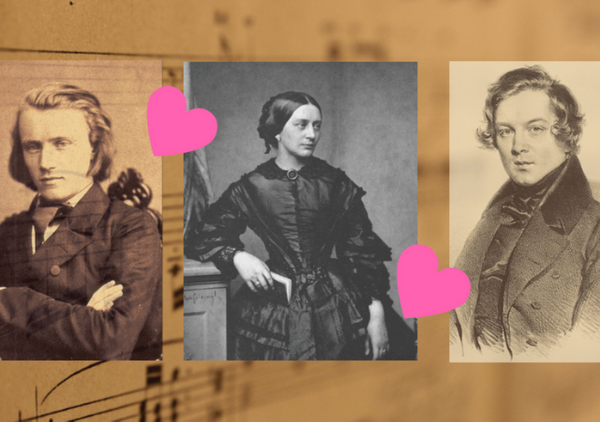Clara Schumann, Robert Schumann, and Johannes Brahms are three of the most celebrated composers and pianists of the 19th century. Their musical talents and achievements are widely recognized and admired, but their personal lives are also full of drama and intrigue. In particular, the relationship between Clara, Robert, and Brahms has been the subject of much speculation and controversy, as they formed a complex and passionate love triangle that lasted for decades.
Clara and Robert met when she was only nine years old and he was 18. He was a student of her father, Friedrich Wieck, a prominent piano teacher in Leipzig. Clara was a child prodigy who impressed everyone with her virtuosity and musicality. Robert was immediately drawn to her talent and beauty, and soon became a frequent visitor at the Wieck household. They developed a close friendship and mutual admiration, which gradually turned into romantic love as Clara grew older.
However, their relationship faced strong opposition from Clara’s father, who did not approve of Robert’s unstable personality, poor health, and uncertain career prospects. He also feared losing his daughter’s affection and income, as she was a successful concert pianist who supported the family financially. He tried everything to prevent their marriage, including legal action, slander, and manipulation. But Clara and Robert were determined to be together, and after a long and bitter court battle, they finally married in 1840, when Clara was 21 and Robert was 30.
They had eight children together, but their marriage was not without difficulties. Robert suffered from mental illness, which manifested in episodes of depression, hallucinations, paranoia, and suicidal impulses. He also struggled to establish himself as a composer, as his music was often criticized for being too complex and unconventional. Clara supported him emotionally and financially, as she continued to perform and compose while raising their children. She also promoted his music by playing it in her concerts and editing it for publication. She was his devoted wife, muse, and partner.
Brahms entered their lives in 1853, when he was 20 years old and they were 43 and 33 respectively. He was an aspiring composer who had heard of Robert’s reputation as a music critic and champion of new music. He sent him some of his compositions and received a warm invitation to visit him and Clara in Düsseldorf. Brahms was thrilled by this opportunity and impressed them both with his music and personality. They welcomed him as a friend and protégé, and Robert hailed him as the successor of Beethoven in a famous article.
Brahms felt a deep gratitude and admiration for the Schumanns, who treated him like a member of their family. He also developed a strong attachment to Clara, who he found beautiful, intelligent, and talented. He was inspired by her strength and grace in dealing with her husband’s illness and her large family. He became her confidant and helper in times of trouble.
Trouble came soon enough, as Robert’s condition worsened in 1854. He attempted suicide by throwing himself into the Rhine river, but was rescued by some fishermen. He then asked to be taken to an asylum, where he spent the last two years of his life until his death in 1856. Clara was devastated by this tragedy and was not allowed to see him during his confinement. She relied on Brahms for comfort and support, as he moved in with her and helped her with her children and household affairs. He also encouraged her to resume her career as a pianist and composer.
During this period of grief and loneliness, Clara and Brahms grew closer than ever. They exchanged letters full of affection and tenderness, expressing their mutual love and admiration. They also shared their musical ideas and works with each other, influencing each other’s style and creativity. They seemed to be soulmates who understood each other perfectly.
But their relationship was not simple or easy. They faced many obstacles that prevented them from being together as lovers or spouses. They felt guilty for betraying Robert’s memory and friendship.





Comments are closed